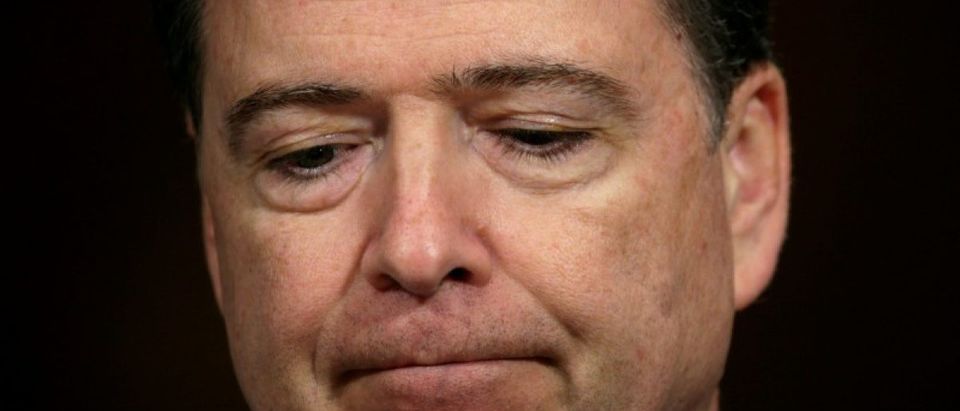Is it possible for anyone to alienate everyone, all of the time? Meet James Comey, the former director of the FBI. If there is a lesson to learn in the Comey story — at least as it has unwound thus far — it is that you don’t achieve objectivity, or even the appearance of objectivity, by first attacking your conservative critics and then, in an apparent attempt to appear non-aligned, undermine your liberal enemies. Comey could never seem to get that right: you can think of examples of world leaders whose downfalls were applauded by a diverse audience, but it is difficult to think of an American example of a powerful bureaucrat who seemed to excel at burning bridges and not mending fences.
It is worth noting that the FBI can never escape the J. Edgar Hoover imprisonment. Hoover not only survived for almost five decades as the director, he so fashioned he bureau in his own image and through his own public relations that it is difficult not to separate the agent from the G-Man myth that Hoover so successfully crafted over the years that the FBI successfully and successively battled gangsters, Klansmen, Nazis, communists and counter-culture agitators.
The one thing Hoover was always aware of was the separation of his office from the partisan politics of the day. He was as comfortable with and as intimidating to Democrat and Republican presidens alike; none of them had the temerity or the political naivite to fire him because they knew Hoover had some dirt on them, somewhere.
But whether you think Hoover was a paragon of a public service or an aggressive affront to democracy, he at least understood the need to stand above party politics and never to descend into the mudslinging and grime of partisan battles that a bureaucratic can neither win nor emerge from unsullied.
This was clearly Comey’s trouble as he ignited one political firestorm after another, always maintaining that he was just doing his job yet always succeeding to be driving another wedge between the two-party system.
His legacy will be one of a public servant who interfered in the 2016 election, though it is still not clear, and might never be so, just who benifitted most from that interference. When he appeared before Congress last summer to explain why he hadn’t charged Hillary Clinton with a crime, he appeared to be in the bag for the Democrats and his reasons for not pursuing Clinton seemed frankly either absurd, partisan or both.
He was the Republican whipping boy for weeks after that just as much as he was man who saved Hillary’s campaign for the Democrats who were sure he was in their camp. Then, when he announced, he had reopened his investigation into Clinton’s emails, just as the Democratic candidate had peaked in the polls, Donald Trump suddenly found new qualities to admire in Comey.
Wel, apparently, those qualities are not so evident to Trump, but by firing him, the president has not only raised suspicions about why he would choose to do so now, he has imperilled the reputation of the FBI as a professional law enforcement agency that is indeed above politics and political influence.
Clearly, the time to fire Comey would have been immediately following Trump’s inauguration, not over three months later when the FBI director was increasingly becoming a captive of the Russian bogeyman story that now seems to be holding half of Washington and the people who sit in Congress spellbound with curiousity.
The mainstream media is again declaring “Watergate” for about the twelfth time in Trump’s young presidency. Not even the real progenitor of Watergate, Richard Nixon, was declared politically dead by The New York Times that many times.
Comey not only should have taken some public relations lessons from Hoover, he should have heeded his advice law enforcement when Hoover said about the FBI: “We are a fact-gathering organization. We don’t clear anyone. We don’t condemn anyone.”
Comey always seemed to be trying to do both at the same time.
Follow David on Twitter.


